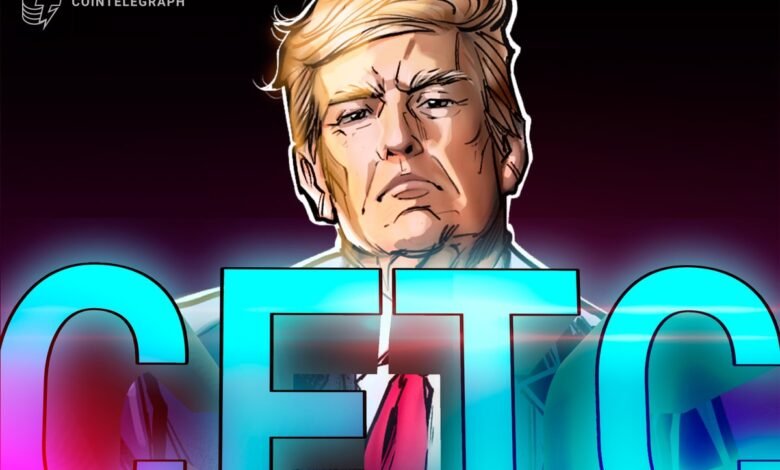What Does CFTC Chair Nominee Michael Saylor Think About Crypto?

The US Commodity Futures Trading Commission (CFTC) may finally get a chairperson as President Donald Trump’s nominee, Michael Selig, begins the vetting process.
The CFTC is currently under the leadership of Acting Chair Caroline Pham, who assumed the role in April 2025. She was nominated to the position by President Joe Biden in 2022 and unanimously confirmed by the Senate.
The Trump administration initially picked former CFTC Commissioner Brian Quintenz, who also sat on the board of gambling platform Kalshi. However, his nomination was withdrawn in September, reportedly at the request of the Winklevoss brothers, who were concerned that he was not sufficiently pro-crypto.
Selig, who has previous experience in government at the CFTC and the Securities and Exchange Commission, has pledged to make crypto a priority.
Who is Michael Selig, and where does he stand on crypto?
Selig, a graduate of the George Washington University Law School, began his career in government at the office of former CFTC Commissioner J. Christopher Giancarlo from 2014 to 2015.
After leaving the CFTC, Selig was an associate at Cadwalader, Wickersham & Taft, and Perkins Coie, where he became counsel. In April 2022, he joined Willkie Farr & Gallagher, becoming partner in January 2024.
In March 2025, he became chief counsel to the SEC’s Crypto Task Force and a senior advisor to the chairman.
Selig was unambiguously pro-crypto in an X post on Saturday, confirming his nomination. He said that “a Great Golden Age for America’s Financial Markets and a Wealth of New Opportunities stand before us,” adding that he will “help the President make the United States the Crypto Capital of the World.”
Related: Trump weighs new CFTC chair candidates as Quintenz confirmation stalls
David Sacks, the White House’s AI and crypto czar, said that Selig is “passionate about modernizing our regulatory approach in order to maintain America’s competitiveness in the digital asset era.”
“[Selig] has not only been instrumental in driving forward the President’s crypto agenda as Chief Counsel of the SEC Crypto Task Force, he also brings deep experience in traditional commodities markets from his time working at the CFTC under former Chairman Chris Giancarlo.”
Industry observers noted Selig’s close analysis of the SEC v. Ripple case. In 2023, he contended that XRP “is simply computer code.” He called it a “fungible commodity, like gold or whiskey — both of which can also be sold as part of investment schemes that implicate securities laws.”
He said the “SEC can’t argue a $2b penalty against Ripple with a straight face any better than it can the security status of XRP.”
This tack toward viewing digital assets as a commodity, rather than a security, is particularly important as Congress considers a reshuffling of crypto regulation.
CFTC and SEC rebalance crypto regulation, but shutdown looms
In the US Senate, lawmakers are currently deliberating over the Responsible Financial Innovation Act. The bill, which passed the House of Representatives in a simpler form called the “CLARITY Act” earlier this year, would reclassify many cryptocurrencies as commodities.
Correspondingly, the responsibility of regulating a significant number of cryptocurrencies, like Bitcoin (BTC), would fall to the CFTC. The commission already acts as the primary regulator for crypto derivatives and has anti-fraud authority over the industry’s spot market.
The bill is still under consideration, but the government shutdown and increasing bipartisanship have stalled progress significantly, blowing well past the end of September deadline Senator Tim Scott had been hoping for.
Related: Democrats counter US crypto framework; bill grinds to a halt
The SEC and CFTC have taken their own initiatives to align their approaches on cryptocurrencies. In September, SEC Chairman Paul Atkins announced a roundtable with the CFTC to align on cryptocurrency regulation and “ensure the SEC and CFTC operate side by side so that American innovation and investment can thrive.”
Pham said that, in recent years, “the dynamic between our agencies could be described as one of competition rather than collaboration.”
“It is not what we want. And it’s not the best way to serve the American people who rely on us.”
Pham noted that the agencies were making joint recommendations to the administration’s Working Group on Digital Asset Markets via the SEC’s Project Crypto and the CFTC’s Crypto Sprint. The CFTC chair said that cross-agency collaboration will “foster innovation, remove jurisdictional ambiguities, and enhance market access and the freedom to choose for customers and investors.”
Even these efforts are limited in their ability and scope so long as a government shutdown continues, former CFTC Chair Giancarlo previously told Cointelegraph. He said that it would be “very difficult for the CFTC to implement the rulemaking that’s required under the CLARITY Act under an acting chair without a full commission, or at least a partial commission.”
Federal agencies are operating with skeleton crews, and Democrats and Republicans continue to spar over a funding bill. Lack of full staff has affected not only the CFTC and SEC’s ability to implement new rules but has also hampered the latter’s ability to consider crypto exchange-traded fund listings.
With Selig’s nomination, the CFTC is poised to take on the role of regulating crypto. But first, the government must agree to a budget, and political heavyweights from the crypto industry like Cameron and Tyler Winklevoss must approve.
Magazine: Solana vs Ether ETFs, Facebook’s influence on Bitwise: Hunter Horsley
Source link


